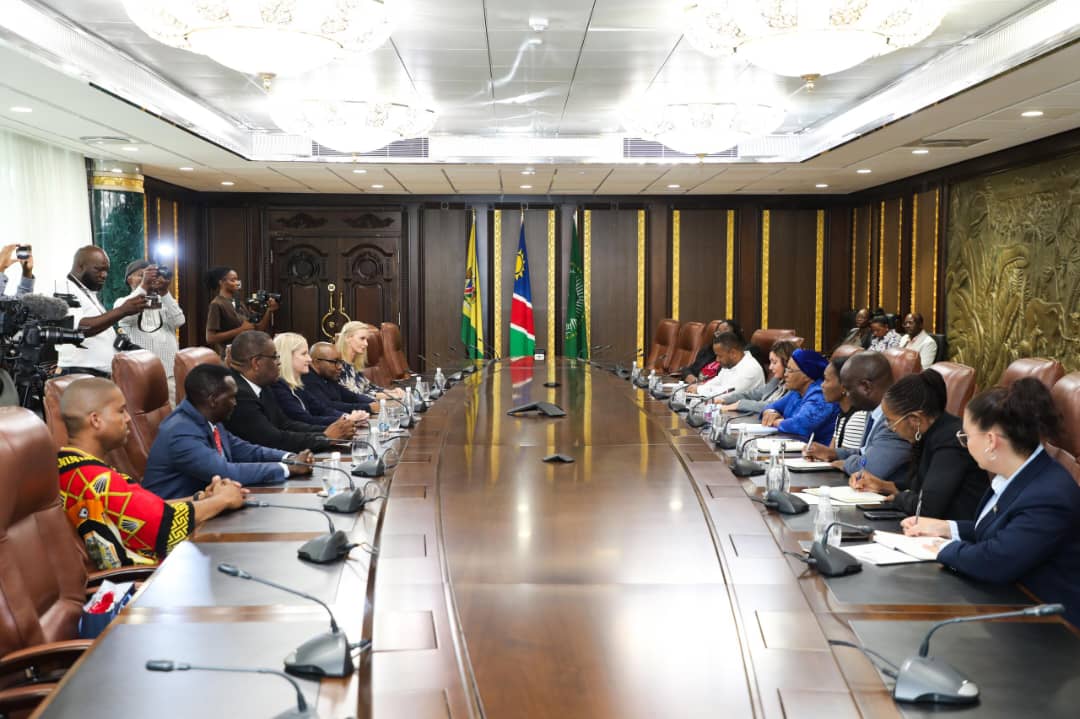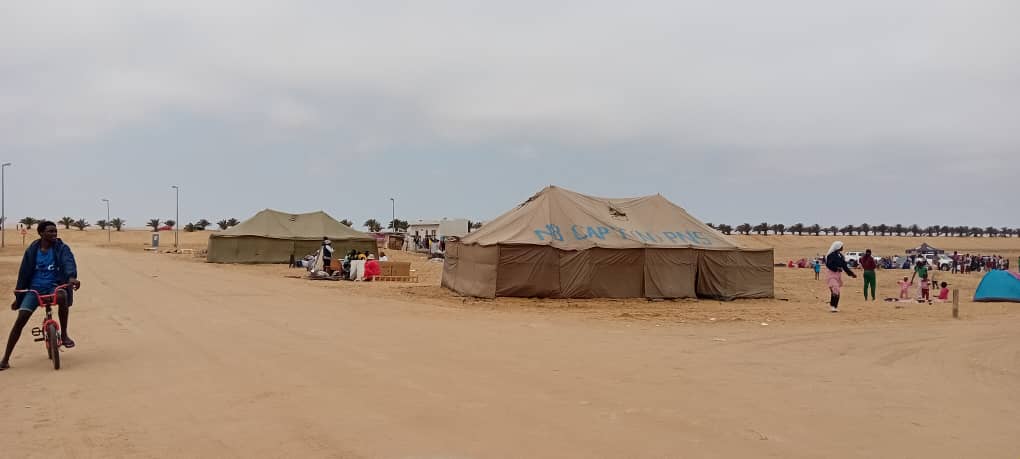HONG KONG – Hype, ministerial talks, violent protests and acres of press coverage have left the world’s poor in the same aid-dependent and protectionist trap, after the World Trade Organisation (WTO) met here for a “development round” last week.
It was heart-rending to hear the European Union (EU) offer the poor an aid dose of up to two billion euros a year for the next ten years, along with some minimal attempt at lowering barriers for the poor’s agricultural produce. This lame project, termed “Aid for Trade,” means in plain terms replacing trade reforms with more aid cash – thus defeating the fundamental purpose of the WTO’s belief that trade enhances development.To make it worse, 50 years of aid has impoverished Africans while propping up their leaders and making them unaccountable to their citizens.African Members of Parliament here at the talks were suspicious of “Aid for Trade” both because they feared it might mean accepting less protectionism (which they call “Trade Justice”) and because they knew that past aid promises were not fulfilled.This money, on previous form, could just be a re-statement of figures from a G8 deal reached in June 2005.In defending “Trade Justice”, the African ministers complained that industrialised countries, led by the EU and the United States of America, have continued to exert undue pressure, inducement and outright blackmail in their drive to secure a favourable outcome for agriculture, non-agricultural market access (NAMA) and services,” they said in a statement on December 14.”We note the attempts at duplicity in various ‘offers’ by different countries,” the statement said, adding that US and EU proposals would leave their subsidies intact or strengthened: “to add insult to injury, the EU is conditioning this offer on our agreeing to extreme liberalisation commitments.”So African leaders are considering fighting back with more protectionism through reciprocal tariffs.But World Bank figures show that African nations already slam tariffs as high as 33,6 per cent on agricultural commodities from their neighbours.Another World Bank study says removing all agricultural trade barriers would benefit poor countries by US$140 billion a year.But doing away with only the barriers in rich countries would generate only US$30 billion of this figure, it says: the rest would come from removing barriers in and between poor countries.The United States Agency for International Development (Usaid) also calculates that 70 per cent of all tariffs in the world are erected by developing countries against other developing countries.The irony is that Hong Kong, where the WTO met, became one of the richest places in the world by unilaterally dropping all trade barriers, customs duties, and tariffs.So, although the leaders of poor countries will say that they were once again ditched by the wealthy, they would do well to look in their own backyards first.Today, trade among African countries accounts for only about 10 per cent of their total exports and imports.One explanation for this is that most of Africa’s economies are agrarian.Yes, but they do not stand much chance of diversifying or adding value unless they reduce tariffs and taxes on imports of industrial goods.Currently these are outrageously high.A simple illustration with the importation of a used car in Ghana will help.Port authorities ask you to pay 50 per cent of the original price of the car, VAT of 12,5 per cent, and other indeterminate levies that come up to almost 100 per cent tax on the used car – so imagine importing heavy agricultural machinery.If this were not enough, according to Nigerian President Olusegun Obasanjo, corruption alone robs the continent of US$149 billion annually – US$9 billion more than the total benefits of scrapping all global trade protectionism.This figure seems unbelievably high but in August 2004 an African Union report gave a similar figure, representing 25 per cent of the continent’s gross domestic product.This bonanza has been fed by aid for 50 years.So what we really need is transparent, accountable and decentralised governance, and free trade.Our governments should cut back economic intervention, slash tariffs, free financial markets, remove obstacles to starting businesses, establish property rights and ensure that we are all subject to the rule of law.That is the kind of trade policy we need and the kind of justice we need.* Franklin Cudjoe is director of Imani, a policy think-tank in GhanaThis lame project, termed “Aid for Trade,” means in plain terms replacing trade reforms with more aid cash – thus defeating the fundamental purpose of the WTO’s belief that trade enhances development.To make it worse, 50 years of aid has impoverished Africans while propping up their leaders and making them unaccountable to their citizens.African Members of Parliament here at the talks were suspicious of “Aid for Trade” both because they feared it might mean accepting less protectionism (which they call “Trade Justice”) and because they knew that past aid promises were not fulfilled.This money, on previous form, could just be a re-statement of figures from a G8 deal reached in June 2005.In defending “Trade Justice”, the African ministers complained that industrialised countries, led by the EU and the United States of America, have continued to exert undue pressure, inducement and outright blackmail in their drive to secure a favourable outcome for agriculture, non-agricultural market access (NAMA) and services,” they said in a statement on December 14.”We note the attempts at duplicity in various ‘offers’ by different countries,” the statement said, adding that US and EU proposals would leave their subsidies intact or strengthened: “to add insult to injury, the EU is conditioning this offer on our agreeing to extreme liberalisation commitments.”So African leaders are considering fighting back with more protectionism through reciprocal tariffs.But World Bank figures show that African nations already slam tariffs as high as 33,6 per cent on agricultural commodities from their neighbours.Another World Bank study says removing all agricultural trade barriers would benefit poor countries by US$140 billion a year.But doing away with only the barriers in rich countries would generate only US$30 billion of this figure, it says: the rest would come from removing barriers in and between poor countries.The United States Agency for International Development (Usaid) also calculates that 70 per cent of all tariffs in the world are erected by developing countries against other developing countries.The irony is that Hong Kong, where the WTO met, became one of the richest places in the world by unilaterally dropping all trade barriers, customs duties, and tariffs.So, although the leaders of poor countries will say that they were once again ditched by the wealthy, they would do well to look in their own backyards first.Today, trade among African countries accounts for only about 10 per cent of their total exports and imports.One explanation for this is that most of Africa’s economies are agrarian.Yes, but they do not stand much chance of diversifying or adding value unless they reduce tariffs and taxes on imports of industrial goods.Currently these are outrageously high.A simple illustration with the importation of a used car in Ghana will help.Port authorities ask you to pay 50 per cent of the original price of the car, VAT of 12,5 per cent, and other indeterminate levies that come up to almost 100 per cent tax on the used car – so imagine importing heavy agricultural machinery.If this were not enough, according to Nigerian President Olusegun Obasanjo, corruption alone robs the continent of US$149 billion annually – US$9 billion more than the total benefits of scrapping all global trade protectionism.This figure seems unbelievably high but in August 2004 an African Union report gave a similar figure, representing 25 per cent of the continent’s gross domestic product.This bonanza has been fed by aid for 50 years.So what we really need is transparent, accountable and decentralised governance, and free trade.Our gov
ernments should cut back economic intervention, slash tariffs, free financial markets, remove obstacles to starting businesses, establish property rights and ensure that we are all subject to the rule of law.That is the kind of trade policy we need and the kind of justice we need.* Franklin Cudjoe is director of Imani, a policy think-tank in Ghana
Stay informed with The Namibian – your source for credible journalism. Get in-depth reporting and opinions for
only N$85 a month. Invest in journalism, invest in democracy –
Subscribe Now!










